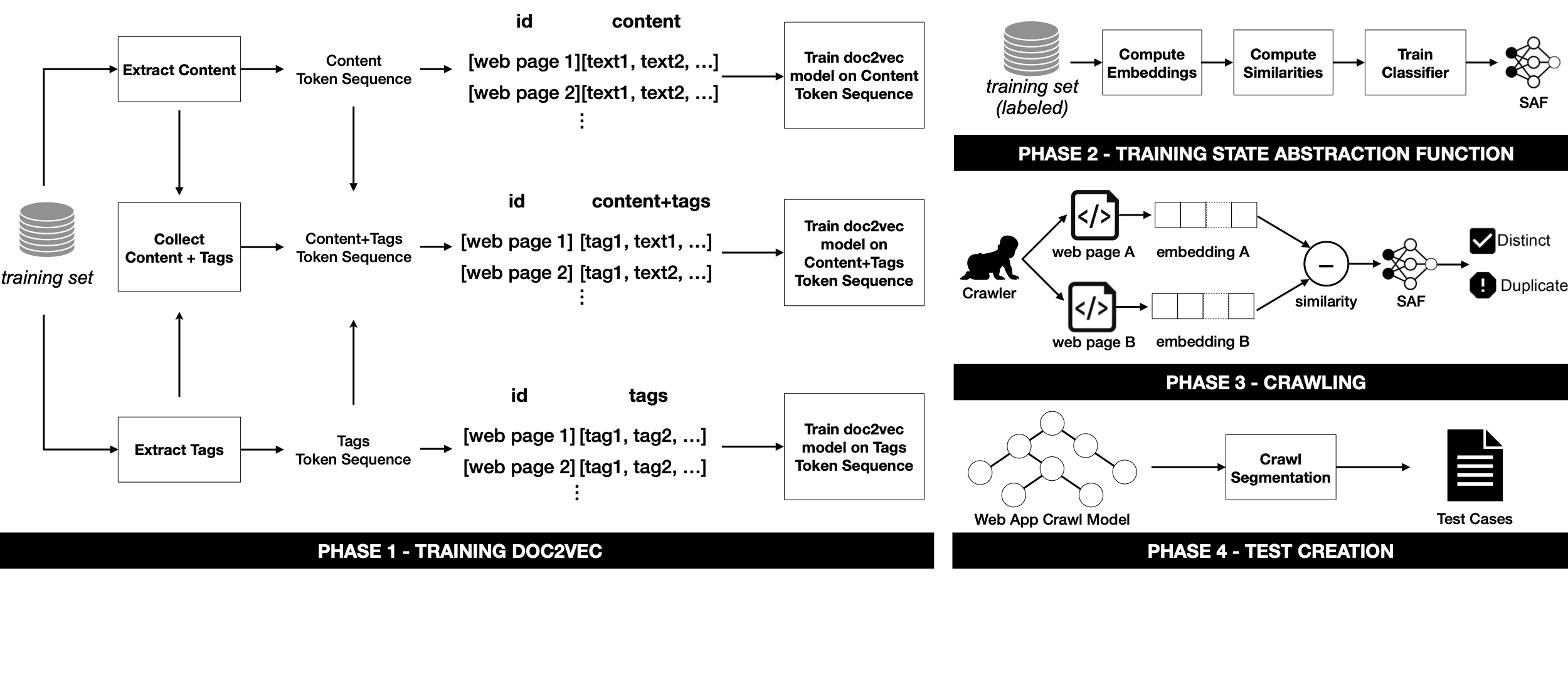Artifacts accompanying the paper "Neural Embeddings for Web Testing" submitted for publication at the IEEE Transactions on Software Engineering (TSE).
Our tool WebEmbed leverages the neural embedding by Doc2Vec and turn them into a similarity score to automatically predict near-duplicate web pages. The figure below shows the approach.
Software setup: We adopted the PyCharm Professional 2020.3, a Python IDE by JetBrains.
First, you need anaconda or miniconda installed on your machine. Then, you can create and install all dependencies on a dedicated virtual environment, by running one of the following commands, depending on your platform.
# macOS
conda env create -f webembed/environments.yml
# Windows
conda env create -f webembed\windows.ymlAlternatively, you can manually install the required libraries (see the contents of the *.yml files) using pip.
Note: Training the Doc2Vec models on our datasets is computationally expensive as it can be done only on a CPU.
Datasets, classifier models and results have a combined size of several GBs and cannot be versioned on GitHub. We will make all artifacts available upon paper's acceptance.
For replicating our results, evaluation scripts are present in the folder webemdeb/script.
A sample of results (RQ1/RQ2) is in the folder webemdeb/csv_results_table.
For RQ3, data are available in the folder webemdeb/rq3 (PPMA and Dimeshift only)
